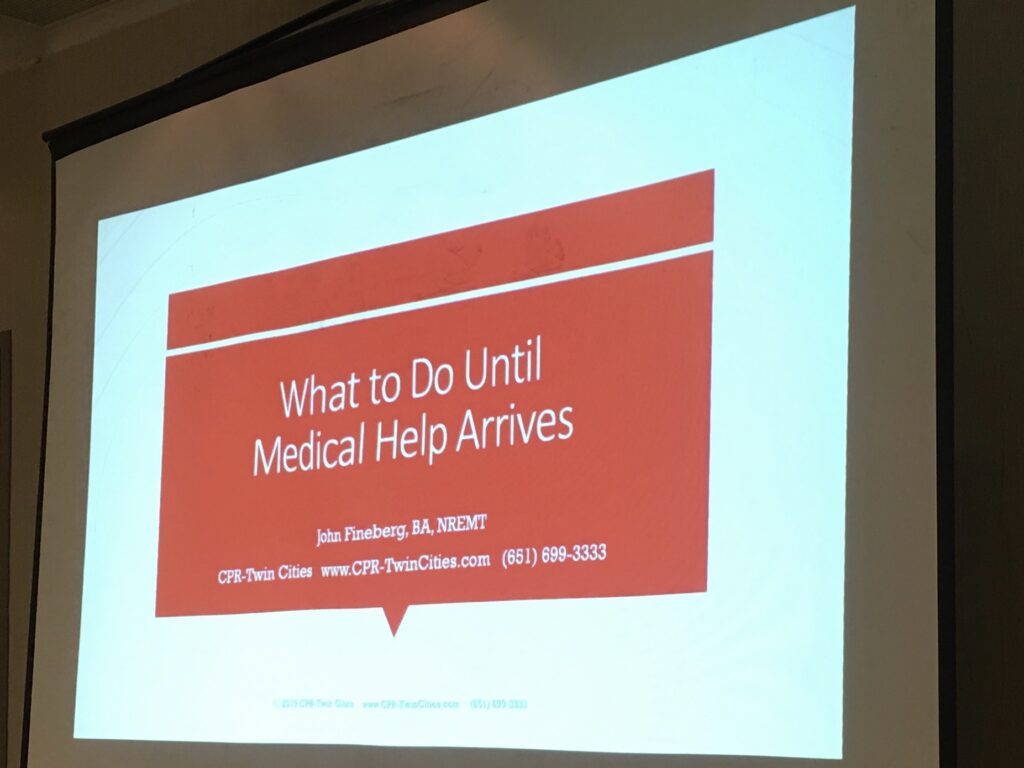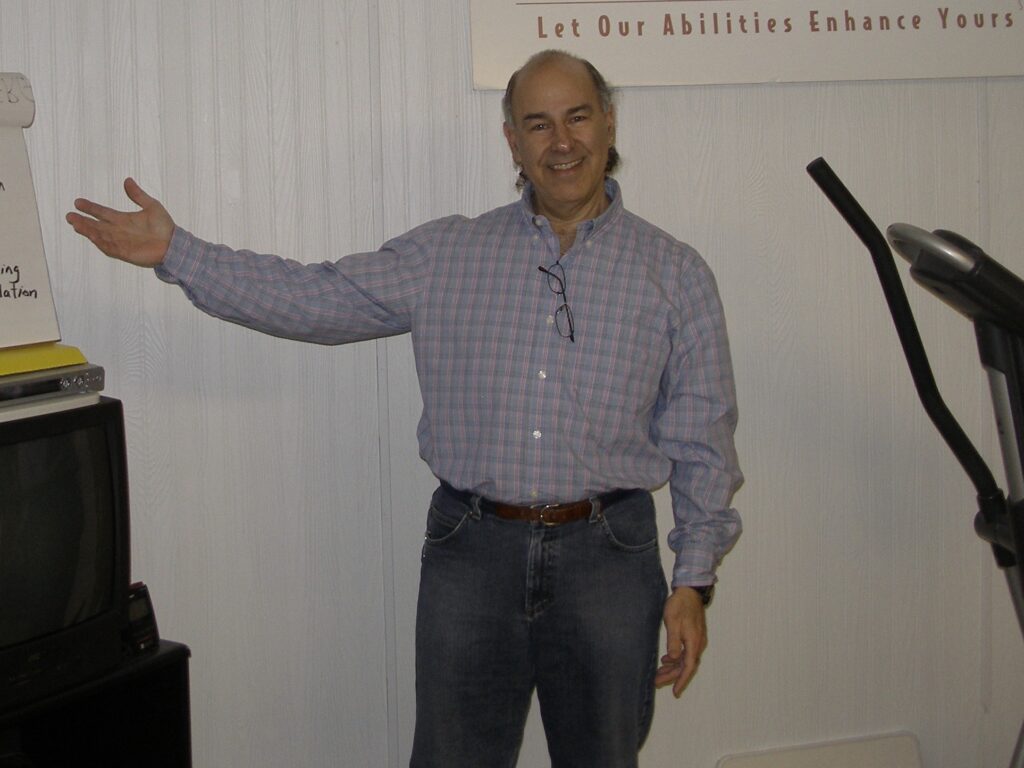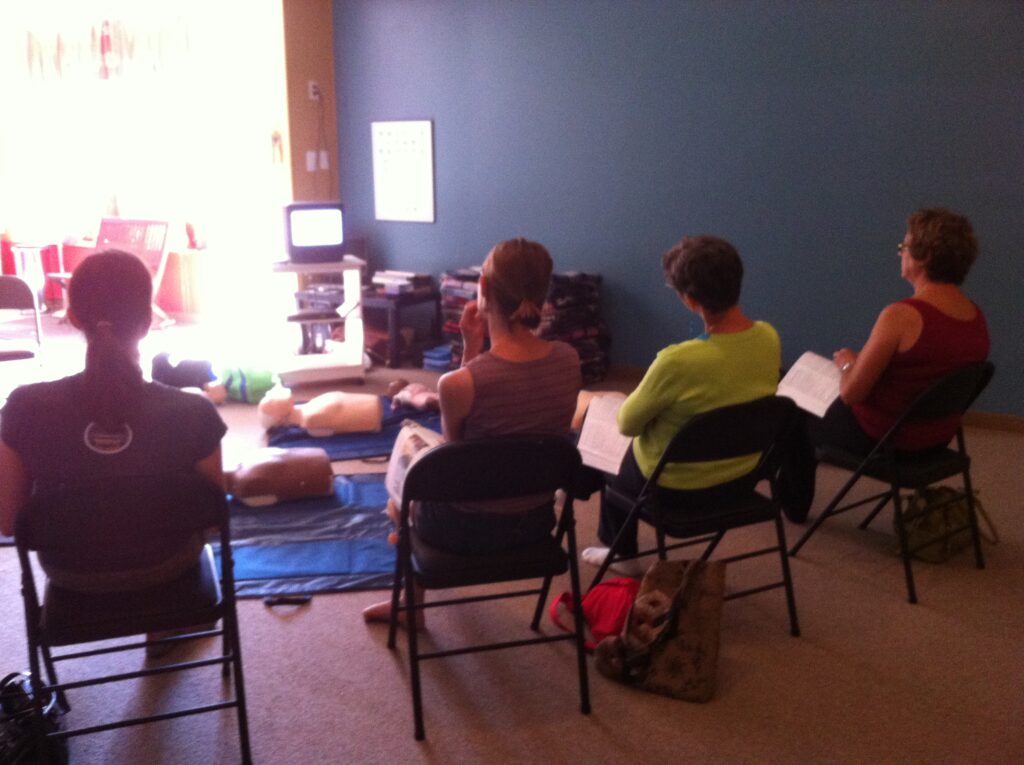Scroll down to find the class that best fits your needs:
Please note: There are currently three variations of how to receive this training: 1) in-person; 2) “synchronous online” (conducted live); and 3) “asynchronous online” (pre-recorded, so you can play/stop/rewind/pause as you like).



“Medical Emergencies — What Non-Professionals Can Do to Help” (in-person or online) 1 – 1.5 hrs.
- a.k.a. “What to Do Until Medical Help Arrives”
- no certification and no hands-on practice
- choice of three options:
- pre-recorded online (can be started/stopped/paused, etc., as you like);
- live online (you can ask questions of the instructor during the class); or
- live in-person (you can ask questions of the instructor during the class)
Group Rate: $29 per person — $300 minimum
Class Size
The prices listed listed on this page are for a minimum of seven students per class. As this is a lecture class — without hands-on practice — there is no maximum number of students (other than with regard to students being close enough to hear the lecturer and see/read the PowerPoint presentation).
Contact Us to Book a Class for Your Group
Click Here for Other Class Options
Get trained … during the calm before the storm!
Looking for health care lecture topic for your conference? Or for a workplace “lunch and learn?” CPR-Twin Cities would be happy to provide you with a guest/keynote speaker or a presenter for a break-out session.
Although most of the curriculum will be based on information taught in CPR-Twin Cities, American Red Cross and American Heart Association classes, it is an abbreviated class. And, since there is no set curriculum, and little hands-on practice, there is no certification. As with all classes, we recommend that you read class descriptions and check with your employer, school, professional organization before registering, so you’re certain that this class will meet their requirements.
All of our lecture in-services will cover the basics of how to recognize a medical emergency and what to do until help arrives. If you wish, we will discuss the Good Samaritan Law, as well as how to protect yourself from disease transmission while giving first aid care. Other options include how to do hands-only CPR (without breaths) and/or how to perform abdominal thrusts (a.k.a. “the Heimlich maneuver”).
In addition to these subjects, time-permitting, we are open to discussing how to recognize and care for a wide variety of injuries and sudden illnesses:
- heart attack
- cardiac arrest
- stroke
- shock
- choking
- strokes
- seizures
- poisonings
- allergic reactions
- diabetic emergencies
- heat/cold emergencies
- burns
- bleeding
- sprains/strains/fractures/dislocations
- spinal injuries
- concussions
This class is also available to individuals. Click here for further information.
*All prices are subject to change without notice.
